The café and hospitality sector has shifted rapidly toward plant-based milk alternatives, guided by dietary trends, customer health priorities, and flavour preferences at the espresso machine. This guide helps cafés and home baristas judge cost versus performance while boosting relevance for search by referencing and semantic variations used by coffee lovers and professionals.
The Rise of Plant-Based Milk Alternatives
Cafés and retailers have increased options as demand grows for non-dairy sips and smarter menu choices. The momentum behind oat milk sales reflects both taste and values, with baristas and customers curious about how each option holds up in a busy service.
Shifts in Café Culture
Menus now commonly list several non-dairy options to suit customers with lactose intolerance, ethical concerns, or taste preferences. Many venues keep both dairy and plant-based lines, offering blends that mirror the performance of cow’s milk for latte art. Industry data and insights echo a broader shift across venues experimenting with new milk alternatives while staying consistent with their house espresso profiles.
Broken Coffee Machine? We'll Brew You Back in Business!
Fast, reliable, and expert repairs for all commercial coffee machines – espresso, drip, bean-to-cup, and more.
What Consumers Expect
Guests want drinks with balanced flavour, a pleasing body, and a creamy texture that complements espresso rather than dominating it. Labels that state fortified with calcium and vitamin B12 support long-term nutrition, particularly for anyone following a vegan diet. Clear ingredient lists with low added sugar and recognisable components help customers feel confident about everyday choices.
Soy Milk — The Balanced Option
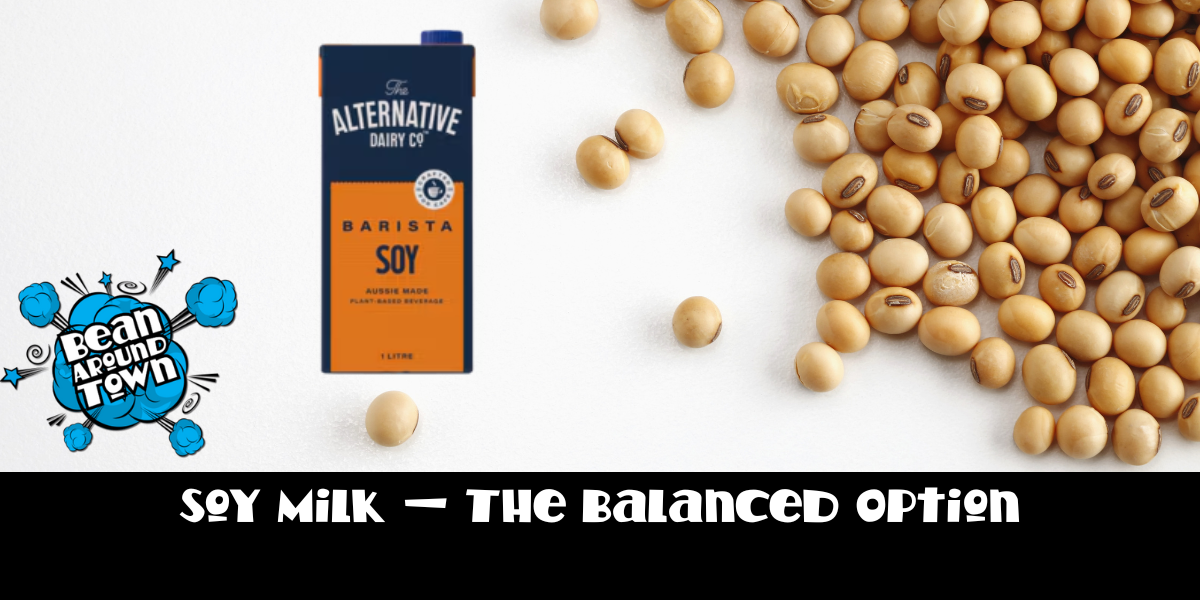
Many cafés consider soy milk the most reliable pick for consistent foam, stable flavour, and functional nutrition. It suits a broad audience and supports latte art with dependable microfoam, even under time pressure.
High Protein Content
Soy delivers high-quality protein that compares favourably to dairy, offering complete essential amino acids in a plant-based format. For regulars who want more protein without relying on animal sources, soy can be a welcome staple throughout the day. It also supports a balanced diet with satisfying body and good mouthfeel, making it popular for smoothies, iced drinks, and hot beverages.
Versatility and Performance
Barista blends of soy milk tend to steam consistently for silkier microfoam and stronger latte definition than many other alternatives. The texture supports drink stability, so routines feel predictable during a rush. In the kitchen, soy suits batters, custards, and sauces, meaning one SKU can work for both the coffee bar and back-of-house prep without fuss.
Nutrient-Rich and Fortified
Many soy options, including organic soymilk, arrive fortified with calcium and vitamin D, sometimes with added vitamin B12 for nutritional completeness. This profile aligns with typical needs in plant-based diets, particularly when used as a daily non-dairy milk option. A fortified label helps bridge gaps for customers limiting dairy yet seeking equivalent minerals.
Broken Coffee Machine? We'll Brew You Back in Business!
Fast, reliable, and expert repairs for all commercial coffee machines – espresso, drip, bean-to-cup, and more.
Cost-Effectiveness
From a purchasing perspective, soy is typically prices below premium nut milks and newer niche products while still delivering café-ready performance. That balance makes it a practical pantry anchor for venues controlling cost per litre without sacrificing experience in the cup. Efficiency across beverages can also reduce training friction and waste.
Considerations
Some brands sweeten or stabilise with oils, so look closely at the nutrition panel. Choosing an unsweetened almond milk or unsweetened soy for recipes that already include syrups or sweet espresso roasts reduces total added sugar. If a café runs a lighter roast, a neutral soy with minimal flavour shift often pairs best.
Other Popular Alternatives
Alongside soy, cafés commonly stock oat milk, almond milk, rice milk, and coconut milk, each with its own character. Rotating a small range can help shops cater to various dietary needs while sticking with recipes that fit their coffee style.
Oat Milk
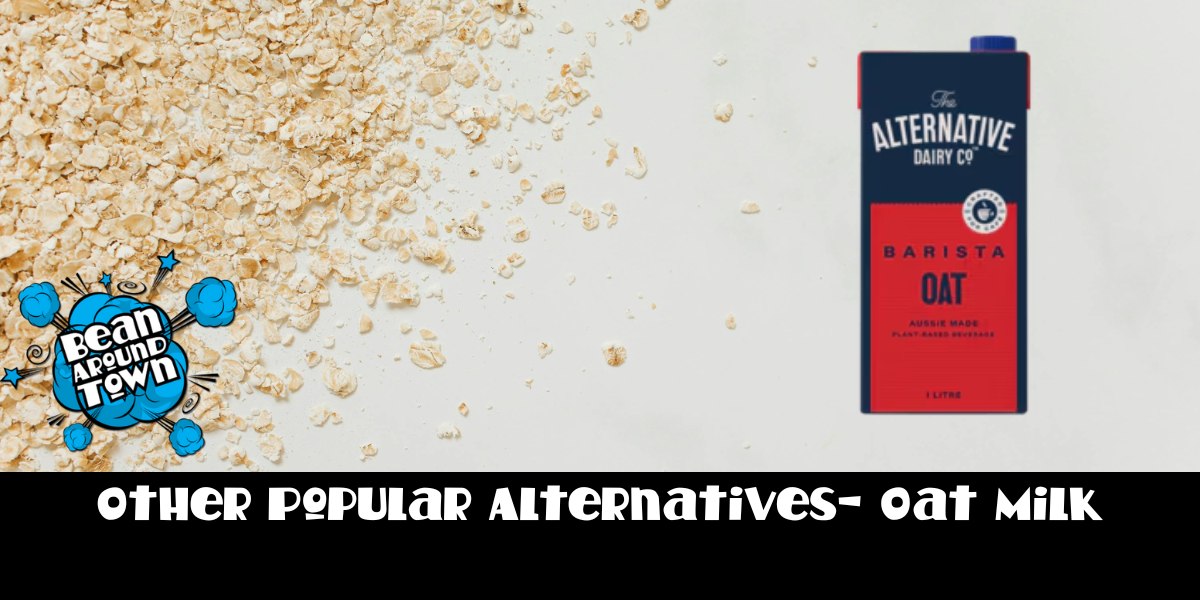
Baristas value oat milk for smooth pour patterns and a natural sweetness that complements espresso’s chocolate and caramel notes. The creamy texture feels familiar to drinkers transitioning from dairy milk, and it suits flat whites or iced lattes where body counts. Oat varieties tend to be friendly for training new staff, thanks to forgiving steaming behaviour.
Almond Milk
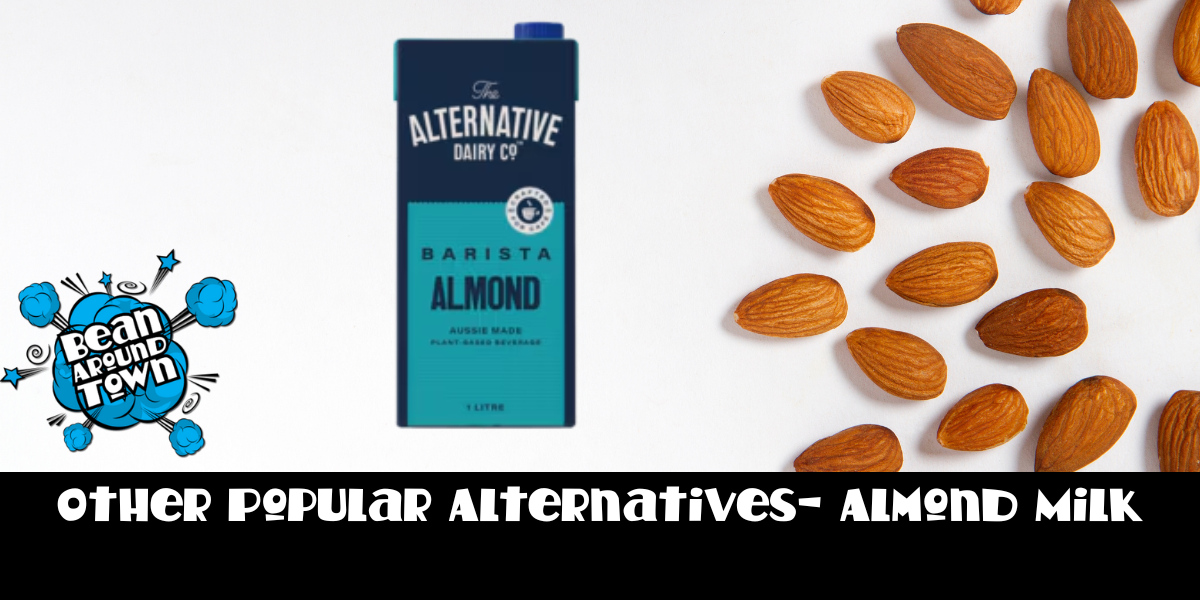
Cafés often stock almond milk for those seeking fewer calories and a lighter profile at breakfast or afternoon tea. Recipes highlighting soaking almonds at home show how simple the base can be, although commercial barista blends improve foam stability. If customers ask for the best almond milk, guide them to low-sugar labels that still hold a clean nutty note in espresso.
Rice Milk
For guests with a milk allergy or anyone limiting soy and nuts, rice milk can be a suitable alternative with a mild flavour. Some producers add brown rice syrup to round out sweetness, so baristas may recalibrate syrups to avoid oversweetening. Fortified versions support protein and calcium goals, even if rice on its own delivers a lighter macro profile.
Broken Coffee Machine? We'll Brew You Back in Business!
Fast, reliable, and expert repairs for all commercial coffee machines – espresso, drip, bean-to-cup, and more.
Coconut Milk
The rich body of coconut milk suits iced drinks and dessert-like specials, and kitchen teams rely on canned coconut milk for curries and baking. Barista formulations keep fat and sugar in balance for steaming, yet the flavour can dominate lighter roasts. Those tracking fat intake may watch saturated fat across daily drinks and reserve coconut for treats.
Nutritional Comparison and Health Benefits
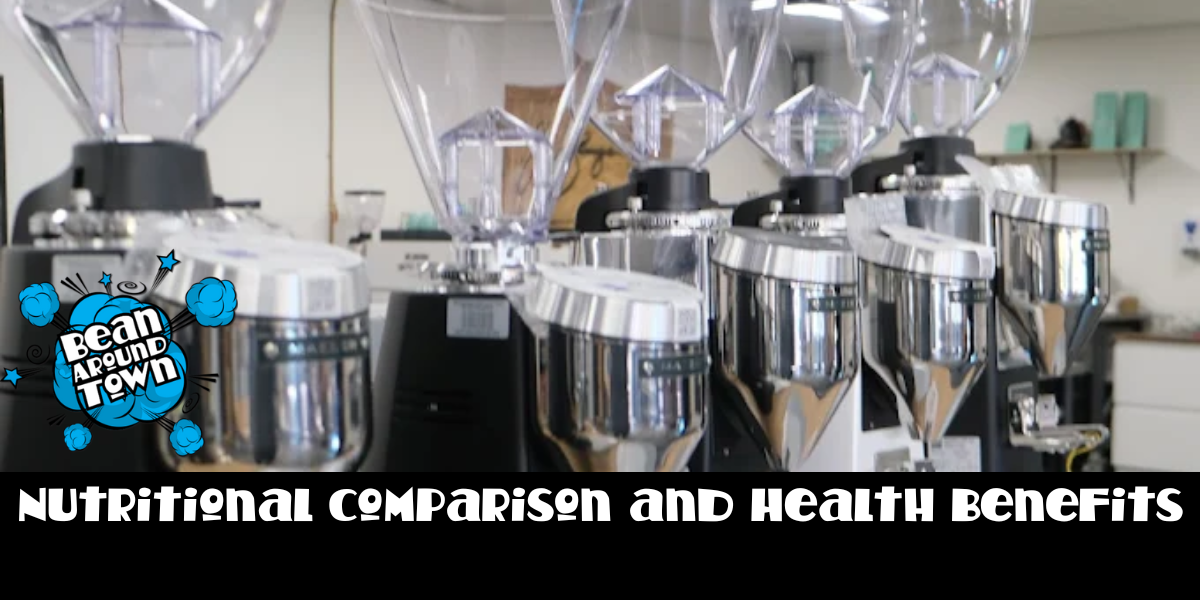
Nutrition labels vary widely across brands, so cafés benefit from shortlisting options aligned with house coffee and clientele. Think in terms of macronutrients, micronutrients, and how steam performance affects workflow.
Protein and Calcium
Soy and pea protein milk are consistent performers for protein content and foam stability. Look for calcium-fortified lines when guests want an everyday alternative to dairy products. This baseline helps those reducing dairy intake retain micronutrients often linked to dairy foods.
Sugar and Calories
Customers aiming to manage energy intake often choose unsweetened almond milk or soy without flavourings. Some plant lines skew naturally sweet, especially oat, so check recipes where syrups and powders add to a drink’s total sugars. Menu cues help regulars navigate options without second-guessing.
Fat Content and Creaminess
Coconut’s lipids give body but shift towards higher saturated fat. Cashew and cashew milk offer roundness without overshadowing espresso, while macadamia lends luxury without heaviness. Shops seeking a familiar mouthfeel often keep oat in rotation for a steady creamy texture in flat whites and lattes.
Broken Coffee Machine? We'll Brew You Back in Business!
Fast, reliable, and expert repairs for all commercial coffee machines – espresso, drip, bean-to-cup, and more.
Cost vs Performance — Which Milk Comes Out on Top?
Balancing unit cost with workflow matters to every café, and the best choice depends on the drink lineup, roast profile, and staff routines. Tasting flights help teams compare foam, flavour clarity, and drink stability side by side.
Best Value for Cafés
Across many programmes, soy milk sits at the sweet spot where price, nutritional value, and foam reliability intersect. The texture reads closer to whole milk than several alternatives, giving baristas confidence through long shifts, for venues focused on latte art consistency, soy often slots in with minimal retraining.
Budget-Friendly Choices
When price per litre takes priority, rice milk and almond or rice milk bundles from wholesalers can be sharp buys that still satisfy regulars. Both benefit from stocking fortified lines to match calcium and vitamin expectations. Where summer traffic peaks, these SKUs scale smoothly for volume service.
Premium Options
Macadamia and hemp milk bring boutique appeal to espresso bars and brunch cafes with specialty menus. Some venues experiment by blending hemp seeds or blending oats to produce milk in-house, tailoring recipes to their roast traits and pastry case. For a plant line with robust foam and structure, pea milk often delivers with a solid body and gentle flavour.
How to Choose the Best Option for Your Needs

Every café has a unique coffee style and clientele, so selections work best when tied to drink mix, price points, and nutrition goals. A short testing protocol makes choices consistent and repeatable.
Determine Your Priorities
If protein and satiety matter, start trials with soy and pea protein milk since both focus on protein and calcium outcomes. For lighter mouthfeel and fewer calories, unsweetened almond milk tends to be the common pick. Teams chasing café art perfection often shortlist oat milk for reliable pours.
Broken Coffee Machine? We'll Brew You Back in Business!
Fast, reliable, and expert repairs for all commercial coffee machines – espresso, drip, bean-to-cup, and more.
Check the Label
Fortification matters for essential nutrients, so scanning for vitamin D and vitamin B12 is a smart step, especially for plant-based diets. A clean ingredient list with minimal added sugar keeps flavours aligned with espresso and filter brews. When assessing varieties, note whether they are fortified with calcium to match common expectations.
Consider Usage
Match products to drink roles: a rich coconut for cold specials, almond for a light capp, soy for consistent latte texture. Batch preparation of hot chocolate and chai benefits from options that keep foam intact after brief holds. For nut-sensitive guests, a neutral non-dairy base like fortified rice can keep the menu inclusive.
Budget and Availability
For inventory control, map suppliers with dependable deliveries and strong bulk discounts. Purchasing policies that lock prices for a quarter or longer stabilise cost per litre as seasons change. This approach also simplifies forecasting when stocking many plant-based milks across a growing menu.
From Our Roastery to Your Café: Bean Around Town’s Guide to Milk Alternatives That Work
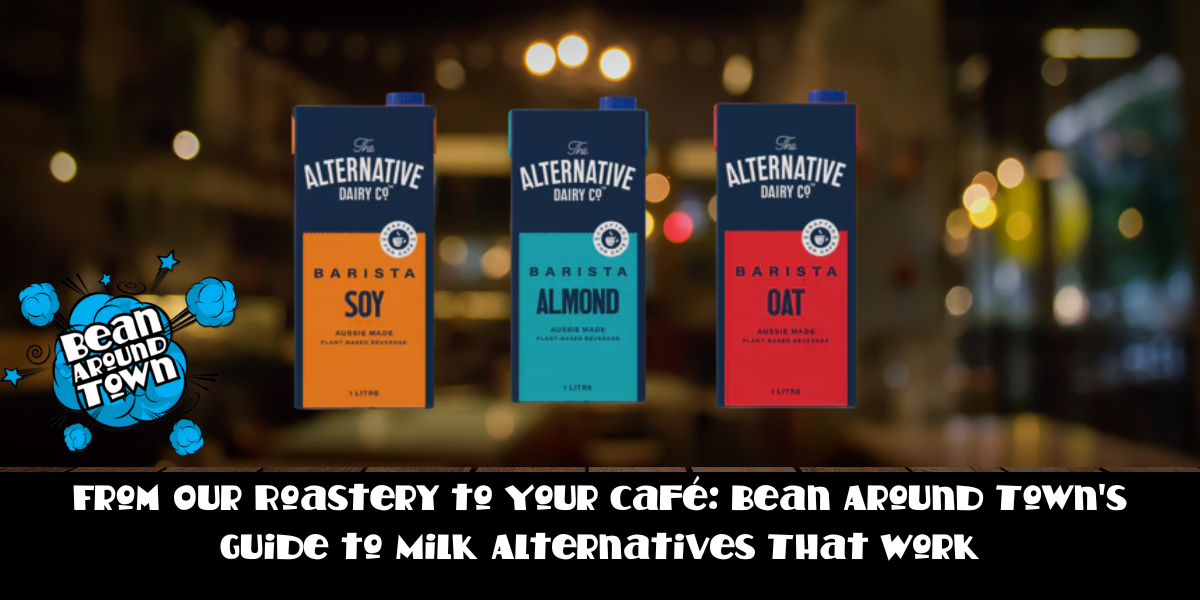
We at Bean Around Town work intimately with Melbourne’s café scene to ensure every milk alternative complements each venue’s signature espresso blend and daily operations. Our approach considers both flavour harmony and practical workflow. We’ve found that soy milk pairs beautifully with chocolate-forward espresso profiles, delivering a clean taste without overpowering the coffee’s character.
For us, oat milk has become a cornerstone recommendation because it performs consistently across varying temperatures and textures latte art reliably, even during peak service when baristas need predictable steaming behaviour. We understand that morning rushes demand milk that won’t split or lose body unexpectedly.
When our café partners seek to refresh their offerings, we introduce options like macadamia and hemp milk. These alternatives bring novelty to the menu while maintaining the pour quality and foam stability that keeps service smooth during high-volume periods. Our goal is to help Melbourne cafés deliver exceptional drinks without compromising efficiency.
Conclusion
For most venues, soy milk delivers dependable foam, solid nutrition, and strong pricing that fits busy service. Oat milk remains a favourite for creamy consistency and easy steaming, while almond milk, rice milk, and coconut milk fill specific roles from low-kilojoule needs to sweet comfort drinks. A smart approach blends quality, nutrition, and cost so every guest finds a cup that suits their day.
Ready to elevate your café’s milk selection? Contact Bean Around Town today to discover premium plant-based options that keep your customers coming back for more.
Frequently Asked Questions
What is the most beneficial milk alternative?
- Many dietitians suggest soy milk for everyday use since it supplies high-quality protein and often arrives fortified with calcium and vitamin D. Brands designed for coffee handle heat well, keeping microfoam resilient for barista work.
Which plant-based milk has the least sugar?
- The lowest sugar profiles usually come from unsweetened almond milk and unsweetened soy, both suitable for espresso and filter brews. If a drink includes syrups or powders, choose neutral bases to balance sweetness and cut added sugar.
Is coconut milk better than almond milk?
- It depends on the drink. Coconut milk gives a lush texture but brings higher saturated fat, while almond milk is lighter with fewer calories and a subtler nut note. Many cafés keep both to cover dessert-style specials and everyday flat whites.
What non-dairy milk has the most protein?
- Soy typically leads among most plant-based milks, with pea protein milk close behind for sturdy foam and structure. Both provide meaningful protein content for guests seeking a reliable non-dairy milk that supports daily nutrition.






